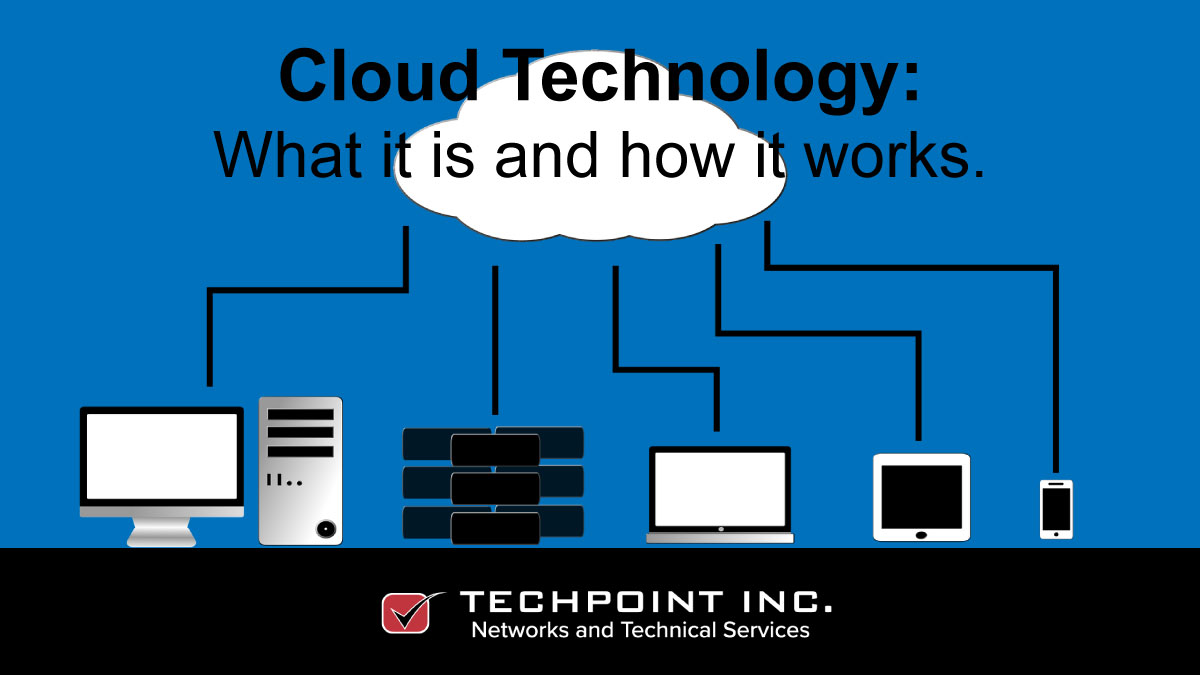The technology around us is always growing, developing, and moving forward, none more so than cloud technology, also variously called cloud services, services in the cloud, cloud apps, cloud computing, enterprise cloud computing, cloud federation, cloud networking, software as a service (SaaS), platform as a service (PaaS), infrastructure as a service (IaaS), and virtualization.
But what is cloud technology?
This article gives those confused by all of this terminology a grounding on cloud services, how they work, and how we use them.
Put simply, cloud services (or cloud technology, etc.) is a collection of web-enabled server-based technology and software that allows a multitude of services, data, programs, and networks available by distributing them through and across the internet (the cloud). A vast amount of resources are currently available using cloud technologies, including:
- Programs & Apps (such as the Microsoft 360, Google Docs, Adobe Creative Cloud, and Apple iWork)
- Data storage (Google Drive, Apple iCloud, & MS OneDrive)
- Servers (such as web servers, or database servers)
- Services (such as cloud phone systems like TechPoint’s Cloud-based Phone Solutions, ZenDesk Help Desk Services, SalesForce CRM, and of course, video and audio such as Netflix and Amazon Music)
Unlike traditionally purchased computer hardware and software, resources made available through cloud technology tend to be subscription-based, rather than purchased outright. This does also mean that many services require an contract of some kind, whether monthly or annual, and of course a credit card, PayPal account, or some other recognized method of automated payment. This can have a positive effect upon your budget and outgoings, since you only need to pay for what you use, and you don’t need to put down a huge payment up front for traditional programs, hardware, or services.
The huge advantage with cloud services is that your apps, data, and services are available wherever you are, whether you have a desktop computer, a laptop, or a tablet, as long as you have access to the internet. So if you’re out ‘in-the-field’, and you get an urgent request from a customer, you can deal with it then-and-there, instead of having to wait until you get back to the office.
Another advantage is that your cloud services are highly reliable, always up-to-date with the latest versions, automatically backed up, fast, and secure.
Variations on Cloud Technology
There are several different models for cloud computing:
- Public Clouds: these are third-party cloud service providers that who deliver their apps and services across the internet directly to their customers. Examples include Shaw, Adobe, and Microsoft.
- Private Clouds: private clouds are the IT services provided to the staff within an individual private company, business, or organization.
- Hybrid Clouds: a hybrid cloud allows for the sharing of an organization’s services between public and private clouds, allowing for greater flexibility, customization, and functionality for the company’s staff and clients.
Types of Cloud Services
There are four broad categories for cloud services, and most products fall into one of these categories:
- Infrastructure as a Service (IaaS): IaaS allows for the delivery and use of virtual computers and servers, storage devices, networks, and operating systems, without having to pay upfront for a physical device.
- Software as a Service (SaaS): SaaS is a method of providing software programs and apps across the internet for consumer use. Most programs are accessed via a user’s web browser, but many apps also have a desktop version that can be downloaded and installed locally.
- Platform as a Service (PaaS): PaaS provides an on-demand environment for the development, testing, deployment, and management of software applications for delivery to consumers and businesses, so that developers don’t need to worry about their underlying infrastructure.
- Serverless Computing (SC): SC works with and beneath PaaS, and is the functionality delivered by the cloud provider that creates the dynamic environment that PaaS developers need in order to maximize their productivity.
Take a look at this previous post for more information on cloud technology services, or contact TechPoint for help and advice on choosing the right product for your business.
